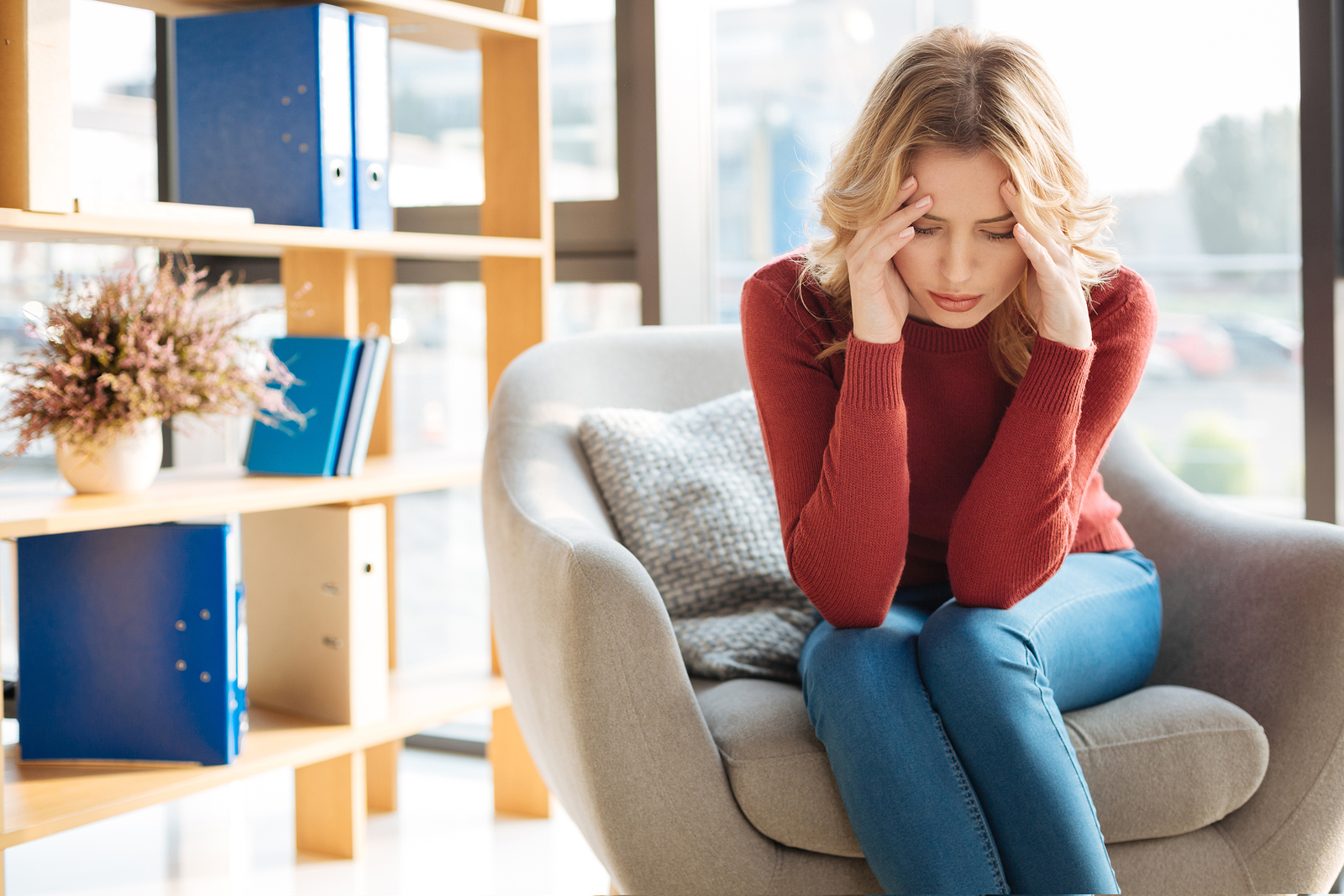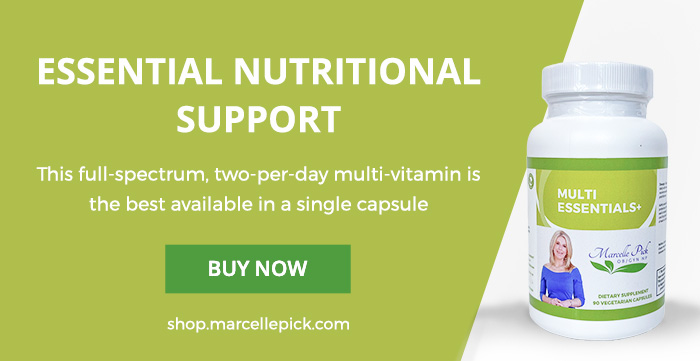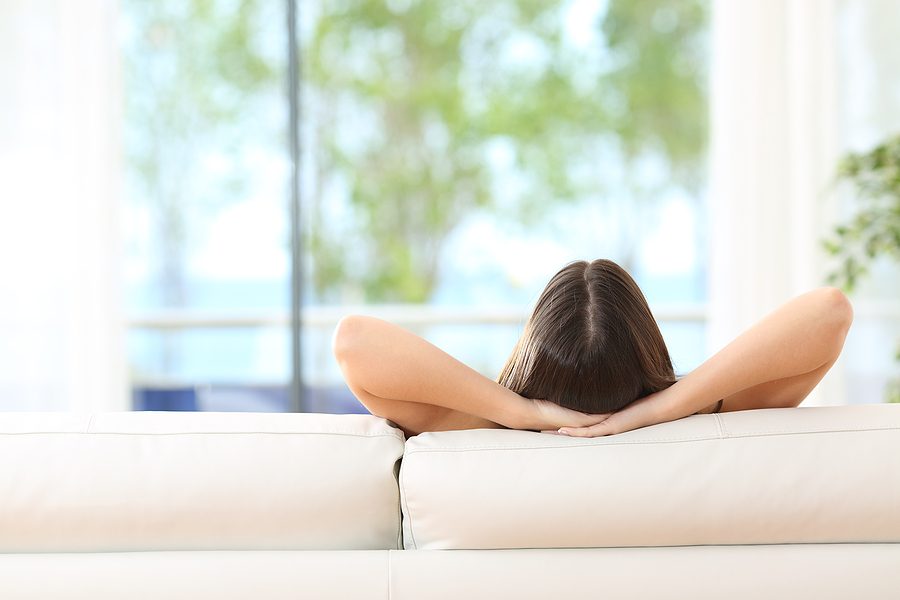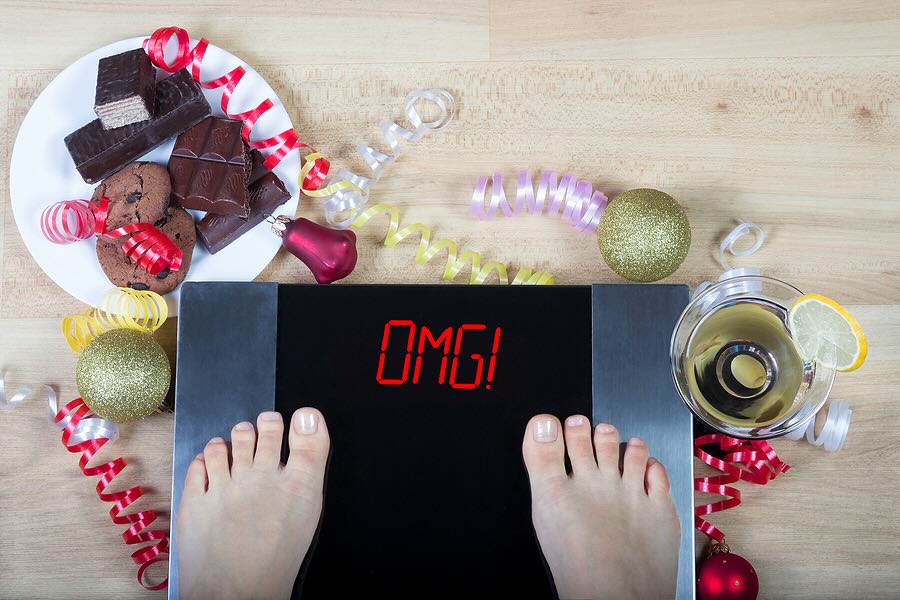Do you have any friends who haven’t talked about feeling anxious at one time or another? If so, I’d be surprised! I don’t know anyone who has never experienced anxious feelings along with physical symptoms – a rapid heartbeat and sweaty palms before a presentation or a rush of “what if” questions flooding their mind before making a big change. But that temporary, situational anxiety is different than dealing with symptoms long term.
Maybe you know what I’m talking about. You’ve been called a worrier all your life; you burst into tears at the littlest thing; your mind races with thoughts constantly – and not happy thoughts! Those “what if” questions I was talking about before generally don’t end with good possibilities. It’s never What if I ace this presentation and get offered an amazing job on the spot? No, typically those thoughts go something like this: What if they all laugh at me? What if I fall on my face? What if I can’t remember a word of my presentation and I stand there silent? What if I don’t have anything intelligent to say at all? What if I fail at this new job? And on it goes!
If you often find yourself with this kind of negative thought pattern, or have other chronic symptoms like headaches, nausea, stomach problems and more, you could be dealing with anxiety. And you’re not alone. So many people are dealing with chronic anxiety. In fact, the most common mental illnesses in the U.S. are anxiety disorders, with over 40 million adults impacted each year. That’s 18.1 % – almost a fifth – of the population!
Even if you don’t have a full blown disorder, you could be suffering more than you need to.
Mild to moderate anxiety may not stop you from working, parenting, having intimate relationships, and even enjoying life. But the symptoms certainly aren’t fun and untreated anxiety can become more severe, especially with the biological changes that occur around perimenopause and menopause.
I have a friend who breezed through life without much worry – until recently. In her late 40s, she began to have signs of perimenopause – and a nagging sense of anxiety while driving or riding in a car. It came to a head when she was on vacation with her family. They were driving on a winding mountain road and her anxiety got so intense she had to ask her husband to pull over until she could catch her breath and stop crying. Where did this come from? It was probably building for years; the hormonal changes she’s experiencing simply brought it front and center.
What is Anxiety?
Anxiety can manifest in many different ways. There are several identified anxiety disorders, including generalized anxiety disorder, obsessive compulsive disorder, social anxiety disorder, and many more. All can be treated, but less than half of people suffering from these disorders receive treatment.
There are so many factors that contribute to anxiety disorders – genetics, personality, brain chemistry, and traumatic events are just a few. And in some situations, anxiety is useful. Those feelings help protect us when real danger is present. It’s when we perceive danger when none is actually present that anxiety can become a big problem. If you find yourself suffering from symptoms like headaches, muscle tension, rapid heartbeat, weepiness, insomnia, jumpiness, nausea, chest pain, hot flashes, depression, feelings of panic or a general sense of gloominess, your body is trying to send you a message: something isn’t right!
Living with these symptoms day after day can be horrible, even if you are able to carry on with your regular activities. So let’s take a look at what might be behind your anxiety – and how you can diffuse it naturally.
Hormonal Imbalance Might Be Keeping You Anxious!
Did you know that your hormones could be behind your chronic stress and anxiety? It makes sense, really — after all, hormones have so many important functions in your body. And there’s research to back it up — both estrogen and progesterone have been shown to play a role in anxiety.
Women are twice as likely as men to experience anxiety, especially during times of hormonal change — right before menses start, during perimenopause and menopause. There is also research showing that anxiety and hot flashes are connected. Menopause doesn’t cause anxiety, but it certainly amplifies what may have been present for some women for years. When I show my patients how to balance their hormones properly, almost all of them report a decrease in anxiety and panic attacks.
There’s plenty of information on the impact progesterone has on energy and mood. Many women experience major premenstrual symptoms like cramps, mood swings, and irritability – all related to changes in progesterone levels.
Estrogen has been demonstrated to have a significant impact on serotonin, a brain chemical that helps regulate mood and emotional processing. Estrogen stimulates the production and transmission of serotonin, so when estrogen levels drop during menopause, serotonin levels may drop as well – and increased feelings of anxiety could result.
When these two very important hormones are out of balance many women report feeling ‘out of sorts’ and ‘not like themselves’. Perimenopause and menopause also leave many women feeling anxious for “no reason at all.” And there’s one more important piece of the hormonal puzzle we need to discuss: the stress hormone cortisol.
Cortisol is released by your adrenal glands in response to stress of any kind – physical or emotional. And studies have shown a relationship between increased cortisol levels and anxiety. To complicate things further, the anxiety itself is stressful, meaning even more cortisol is released. One study showed that older adults with an anxiety disorder had a lower cortisol awakening response than those who did not, meaning their bodies were much quicker to release cortisol. So it’s a self-perpetuating cycle!
But there are simple lifestyle choices and some easy techniques that can help reduce anxiety – without medication – and put your mind at ease. Let’s take a look at some now.
9 Natural Ways to Ease Anxiety
I have helped many women keep chronic anxiety at bay by restoring their natural hormonal balance – without prescription drugs! Here are some tips to calm those inner voices and help you take charge of your life.
1. Make High-Quality Nutritional Supplements Part of Your Daily Routine
It would be great if we could get all the vitamins and nutrients we need from the food that we eat. But in this era of processed everything, that’s increasingly difficult. Even when you make great food choices, commercially grown fruits and vegetables don’t have the nutritional value they used to. To close any gaps that might exist, I recommend that all women take a high-quality Multivitamin.
Other supplements can also help provide anxiety relief. An EPA/DHA supplement (fish oil) will support neurotransmitter balance, and promote mood stability. They provide essential fatty acids, which lower levels of stress chemicals like adrenaline and cortisol in your body. There’s considerable research that shows that omega-3s contained in fish oil can have a positive impact on anxiety and depression.
Herbal supplements may also be worth a try. A review of research found that there is evidence that nutritional and herbal supplementation can be effective treatment for anxiety-related conditions. And there’s no nasty side effects! Herbs found to be particularly effective include passionflower, L-lysine and L-arginine. Chamomile may also promote relaxation. One study at the University of Pennsylvania Medical Center showed a significant decrease of anxiety symptoms in patients that took chamomile supplements for eight weeks compared to those who took a placebo.
2. Step Up Healthy Nutrition
I can’t say this often enough — what you eat really does matter. Processed foods offer little nutrition – and a whole lot of unnecessary chemicals. Eat whole foods, organic when possible. Shop the perimeter of the grocery store – foods without labels are best! In addition to avoiding processed foods, steer clear of additives, food colorings, added sugar and gluten. Eat some protein with every meal and snack! Because caffeine can prompt jittery, anxious feelings, limit how much you are consuming. Replace that second cup of coffee with some herbal tea, filtered water, or flavored seltzer. And remember what I said about omega-3s? You can get these in food too — through canned tuna or salmon, walnuts, and flaxseeds to name a few.
3. Get Enough Sleep – 7 to 9 Hours Per Night
Sleep is essential to body restoration and repair. If you aren’t getting adequate sleep, your body will pump out cortisol to help keep you alert and awake. And when your cortisol levels are consistently high, progesterone and estrogen are also likely to become imbalanced. Set a realistic bedtime for yourself and practice good sleep hygiene. Create a sleep haven in your bedroom, free from electronics and harsh lighting. If you have trouble falling asleep, try some deep breathing exercises, journaling (to get your worries out of your head), or meditation.
4. Spend Some Time Outdoors
Your body needs some time in the sun. If your schedule is jam packed, don’t worry — you only need fifteen to twenty minutes to reap the benefits. And a short break from all that you need to do can help clear your head – especially if you combine the outdoor time with some light exercise. Why is sunlight so important? It stimulates production of Vitamin D, which has been found to be related to mood disorders and depression. If you can find some green space, that’s even better! One Japanese study found that people who walked through a forest for 20 minutes had lower stress hormone levels after their walk than those who took a comparable walk in an urban area. If you’re stuck in a city, look for parks or quiet tree-lined streets to take a stroll.
5. Keep Moving
Exercise can help with anxiety and hormonal balance in so many ways. And it doesn’t have to take hours, or include activities you hate. Forcing yourself to do something you don’t enjoy will increase anxiety – and that’s exactly the opposite of what you’re aiming for! A walk with a friend is fine – or find a new active hobby that you truly enjoy. Leave the cardio classes behind and try a walk along the shoreline, a gentle paddle in a kayak, indoor rock climbing, even jumping on a trampoline.
6. Breathe Deeply
Do you ever find yourself short of breath when you start to feel really anxious? Or, alternately, feeling like you are unable to draw any breath at all? That’s the perfect time to stop what you are doing and focus only on breathing. What you need are deep breaths that come from the belly. Put your hand on your abdomen and feel the breath expand your belly. Try breathing in for a count of seven, holding for seven, and releasing slowly for seven. If you make this part of your daily routine, you’ll be giving your body the oxygen it needs to function optimally.
7. Schedule Time to Worry
What? Worry on purpose? You might be thinking you don’t need to schedule time in — it happens naturally all day every day. But that worry might be stuck on a continual loop because you don’t give it the attention it needs. Having a time set aside to think about all those things, and truly notice what you are worrying about, can clear your mind and help you focus on what actions you can take, instead of simply dwelling on the worry.
8. Tell Yourself a New Story
The way you react to situations is all about perception – what your reality is. And that comes from the stories you have stored inside you. If you examine the way you react to specific situations you might discover way – and be able to let go of those old habits when you realize that story isn’t serving you well. Focus on what’s happening now – not what happened in the past or what might happen in the future. Know your triggers, and practice positive self-talk to change your perceptions – and your tendency to worry.
9. Give Back
It’s really tough to dwell on your own anxiety about things when you’re in the middle of helping someone else. Volunteer at a soup kitchen, a youth program, an animal shelter – whatever catches your interest. Helping others can also give you a sense of accomplishment, which in turn can boost your dopamine levels and decrease anxiety. Seeing other people’s situations can also inspire gratitude for the good things in your life, instead of spending time focusing on the things that aren’t going so well.
Dealing with Serious Anxiety Disorders
A serious anxiety disorder like panic disorder, social anxiety disorder, or generalized anxiety disorder is far more debilitating than the typical anxiety we all feel sometimes. Even chronic low level anxiety can’t compare to the impact of these types of conditions. When anxiety is interfering with your daily routines, work, school or relationships, you shouldn’t try to handle it all on your own. Seek professional help from a trusted healthcare professional or therapist to guide you through navigating the difficult waters of a severe anxiety disorder.
Conclusion
It’s inevitable that you’ll feel anxiety on occasion. But when it becomes a regular part of your daily routine, it’s time to examine the source and take action. Balancing your hormones and making a few simple lifestyle changes can make a big difference in how you feel. And don’t you deserve to live a worry-free life?
References:
https://www.nimh.nih.gov/health/topics/anxiety-disorders/index.shtml
https://www.webmd.com/anxiety-panic/anxiety-tips
https://www.rd.com/health/conditions/natural-anxiety-relief/









